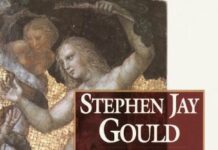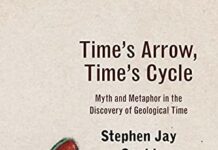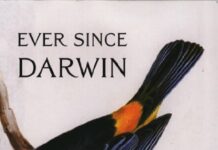
Ebook Info
- Published: 2012
- Number of pages: 190 pages
- Format: PDF
- File Size: 0.00 MB
- Authors: Stephen Jay Gould
Description
In this new edition of Questioning the Millennium, best-selling author Stephen Jay Gould applies his wit and erudition to one of today’s most pressing subjects: the significance of the millennium.In 1950 at age eight, prompted by an issue of Life magazine marking the century’s midpoint, Stephen Jay Gould started thinking about the approaching turn of the millennium. In this beautiful inquiry into time and its milestones, he shares his interest and insights with his readers. Refreshingly reasoned and absorbing, the book asks and answers the three major questions that define the approaching calendrical event. First, what exactly is this concept of a millennium and how has its meaning shifted? How did the name for a future thousand-year reign of Jesus Christ on earth get transferred to the passage of a secular period of a thousand years in current human history? When does the new millennium really begin: January 1, 2000, or January 1, 2001? (Although seemingly trivial, the debate over this issue tells an intriguing story about the cultural history of the twentieth century.) And why must our calendars be so complex, leading to our search for arbitrary regularity, including a fascination with millennia? This revised edition begins with a new and extensive preface on a key subject not treated in the original version.As always, Gould brings into his essays a wide range of compelling historical and scientific fact, including a brief history of millennial fevers, calendrical traditions, and idiosyncrasies from around the world; the story of a sixth-century monk whose errors in chronology plague us even today; and the heroism of a young autistic man who has developed the extraordinary ability to calculate dates deep into the past and the future.Ranging over a wide terrain of phenomena–from the arbitrary regularities of human calendars to the unpredictability of nature, from the vagaries of pop culture to the birth of Christ–Stephen Jay Gould holds up the mirror to our millennial passions to reveal our foibles, absurdities, and uniqueness–in other words, our humanity.
User’s Reviews
Reviews from Amazon users which were colected at the time this book was published on the website:
⭐I found SJG’s little book quite interesting in that he chases rabbits through fields of astronomy, calendrics, history, American Indian lore, mathematics, theology, and other areas including savants.He fails to include Julian days as a means or reckoning the passage of time in a very orderly fashion. Always entertaining but never conclusive on the subject, since he properly makes a distinction between The Millennium of Apocalypse and the millennium of the calendar, he leaves conclusions to the reader. He points out that the media did get it right, according to one school of thought, in the 1900-1901 century transition and the nineteenth century passed to the twentieth Dec. 31, 1900/Jan. 1, 1901. The mid point, however, was signaled by LIFE magazine publishing its mid century issue in January 1950 rather than 1951. What we are really concerned with is the consistent ordinary, everyday reckoning of time, days, and years in an orderly and rational manner. It doesn’take a PhD in calculus or differential equations to deduce that the twentieth century is 20th hundred years, that two millennia is two thousand years and until the 2,000 years have been completed at the END of year 2,000 the twenty- first century and the thirdmillennium have not arrived. As they say about opera…it isn’t over till the fat lady sings. Buy a copy if you are a fan or borrow a copy if you like science fiction mixed with lots of unusual facts. You will find the finale a bit poignant, but don’t cheat, resist the urge to peek.
⭐Of great interest to anyone who’s into history, psychology or the science of reasoning. Gould brings to light some truths about human nature by looking at the history of the millenium, calendar keeping, and our interesting fixation on the calendar numbers that we (not the universe) invented to keep time of the history of our species. Without giving too much away, I found the epilogue very moving. The book presents the reader with an opportunity to learn and think about the issues of calendar keeping, and be touched by some keen observations on human nature.
⭐One of the most thoughtful books I have read. It is not easy, breezy reading. You will have to read several sentences a couple of times to understand Gould’s points. But it is very thought provoking and change my entire notion of time.
⭐good
⭐Stephen Jay Gould (1941-2002) wrote many other important books, such as
⭐,
⭐,
⭐,
⭐,
⭐,
⭐,
⭐,
⭐,
⭐,
⭐, etc.He wrote in the Preface to this 1997 book, “I began to think about this book during the first week of January 1950. I was eight years old, and a good part of my life revolved around the simple pleasures of weekly rituals… The weekly arrival of Life magazine… for 1950 hit me with a force that I still don’t comprehend… The first issue for 1950 marked the halfway point of the twentieth century by evaluating what had happened and predicting what the second segment might bring…. For some reason, as I scanned this issue, my main thought went forward to the year 2000… I would then be fifty-eight years old, while two living grandparents testified to the high probability that I would witness this far more interesting event. I have been buoyed by this lively idea ever since—that I would enjoy the rare privilege of experiencing a transition that… would rivet the attention of nearly all nations… When I should have died of cancer in the mid-1980s, but recovered instead, I listed only two items as … the reasons for cherishing life in our times: ‘… I simply had to see my children grow up, that it would be perverse to come this close to the millennium and then blow it.'”He observes, “We seem so driven to division by two, even in clearly inappropriate circumstances, that I must agree with several schools of thought (most notably Claude Lévi-Strauss and the French structuralists) in viewing dichotomization more as an inherent mechanism of the brain’s operation than as a valid perception of external reality.” (Pg. 30)He observes, “The human brain is the most complex computing device ever evolved in the history of our planet. I do not doubt that conventional Darwinian reasons of adaptive advantage underlie its unparalleled size and intricacy. Nonetheless, many of our brain’s most distinctive attributes… cannot be viewed as direct products of natural selection but must arise as incidental side consequences of the original reasons for such an increase in size.” (Pg. 33)He notes, “Almost any possible numerical basis has been advocated for determining the length of a worldly cycle and the subsequent initiation of the millennium. Many adepts favored a division by two, as the birth of Jesus initiated a second age… until the … dawn of the Second Coming… Joachim [of Fiore] divided earthly history info a cycle of three ‘dispositions’ representing ages of the father, son, and holy spirit. Many other thinkers preferred a fourfold cycle… Still others advocated a fivefold division… Saint Augustine preferred a Great Week of seven historical phases… Obviously, with such diversity in the bases of judgment, intervals of a thousand years could enjoy no inherently favored status. Thus, the millennium has been predicted and expected at almost any time, depending on the system in favor… the year 1000 or 2000, and intervals of 1000 in general, could claim no special preference.” (Pg. 69)He says, “the issue of whether a so-called ‘panic terror’ swept Christian Europe in the year 1000 has provoked a major debate among professional historians for quite some time.” (Pg. 83) He adds, “Medieval historian Richard Landes… convinced me that sufficient evidence now exists to support at least a modest claim for substantial millennial stirring, especially in peasant and populist strata of society… I had not even been persuaded that a year 1000 existed in the consciousness of most people at the time… But Landes and others have shown that the famous chronologies of the Venerable Bede… had been copied extensively and widely distributed to almost canonical use among ecclesiastical timekeepers throughout Europe… Through his works, the advent of the year 1000—and its millennial implications—had probably diffused to all social classes.” (Pg. 85-86)He says of the calculations or Archbishop James Ussher, “Ussher’s large folio volume represents an immense labor of calculation and scholarship (requiring knowledge of Latin, Greek, and Hebrew). You can’t simply spend a rainy afternoon counting the begats in the Bible, for gaps and ambiguities abound, and the record is incomplete in any case—for the chronology of the Old Testament ends with the books of Ezra and Nehemiah in the fifth century B.C., and the New Testament doesn’t pick up again until the time of Jesus. Thus, one has to move laterally from the biblical record into the historical documents of other societies… then forward to Roman history, and back again to the New Testament.” (Pg. 94-95)Besides being a highly creative evolutionary theorist, Gould was also a brilliant writer and an engaged “public intellectual.” His presence is sorely missed on the scientific and literary scene.
⭐Too wordy, and not enough interesting material. The ending was sweet.
Keywords
Free Download Questioning the Millennium: A Rationalist’s Guide to a Precisely Arbitrary Countdown 1st Edition in PDF format
Questioning the Millennium: A Rationalist’s Guide to a Precisely Arbitrary Countdown 1st Edition PDF Free Download
Download Questioning the Millennium: A Rationalist’s Guide to a Precisely Arbitrary Countdown 1st Edition 2012 PDF Free
Questioning the Millennium: A Rationalist’s Guide to a Precisely Arbitrary Countdown 1st Edition 2012 PDF Free Download
Download Questioning the Millennium: A Rationalist’s Guide to a Precisely Arbitrary Countdown 1st Edition PDF
Free Download Ebook Questioning the Millennium: A Rationalist’s Guide to a Precisely Arbitrary Countdown 1st Edition





